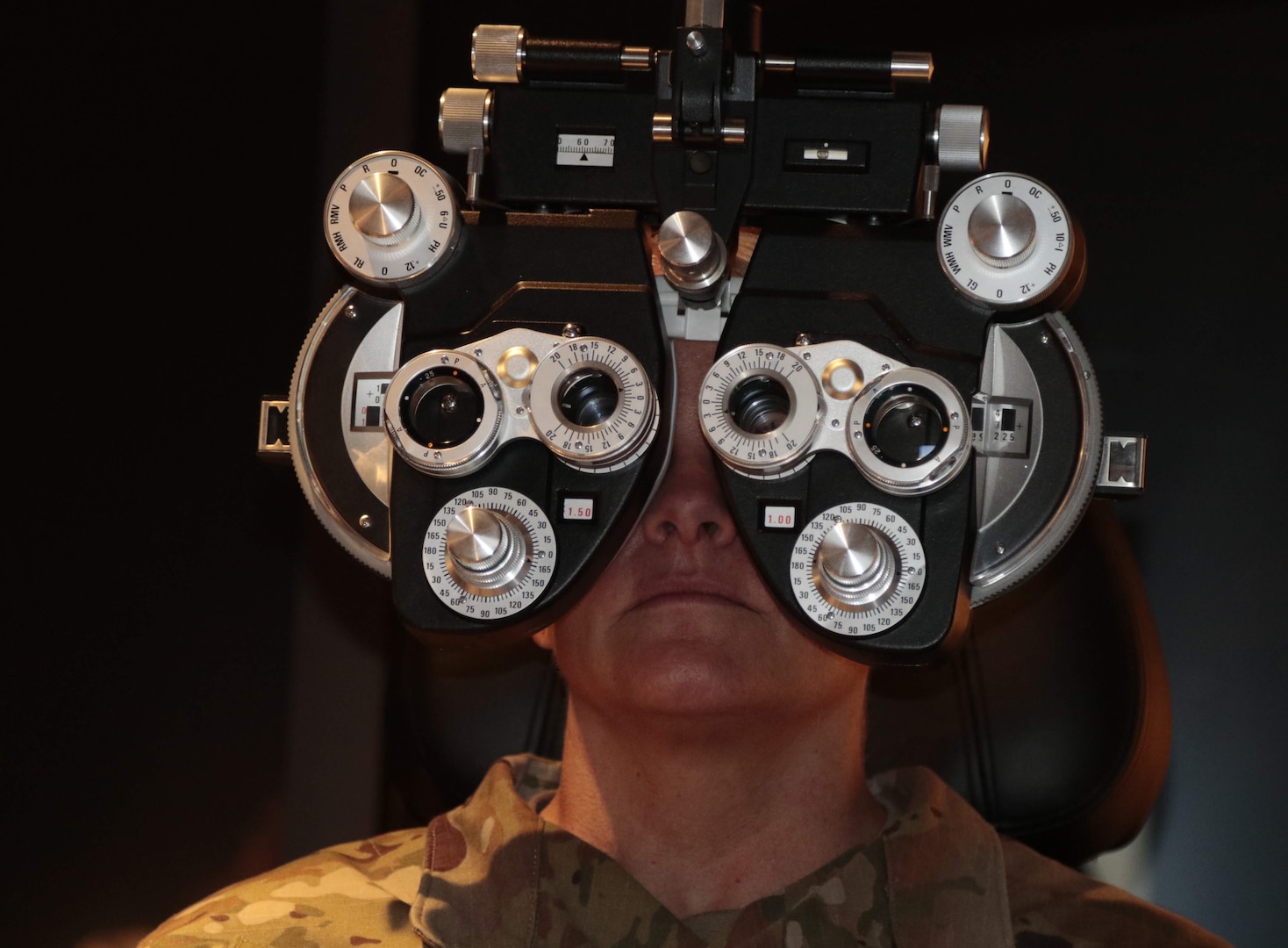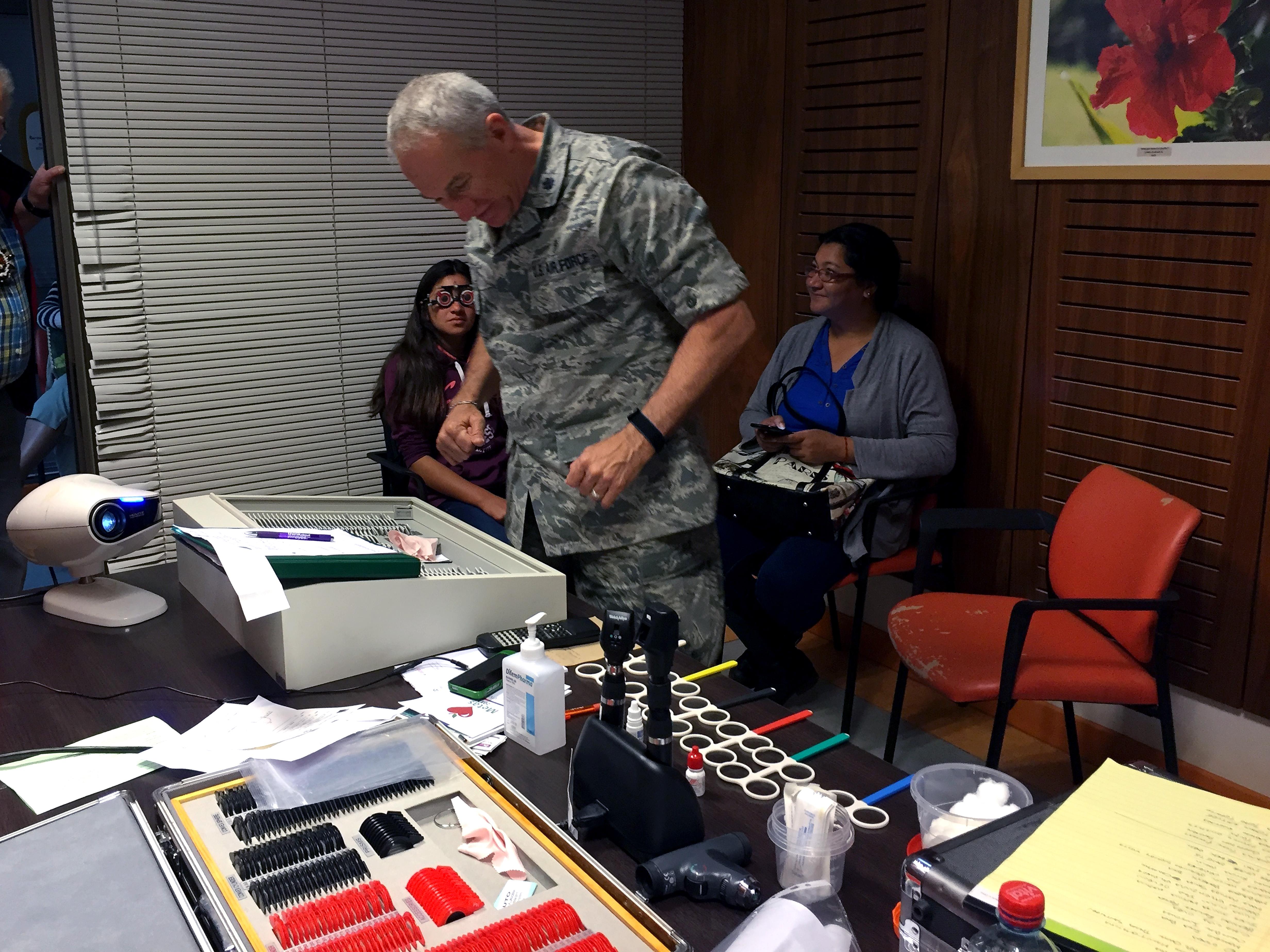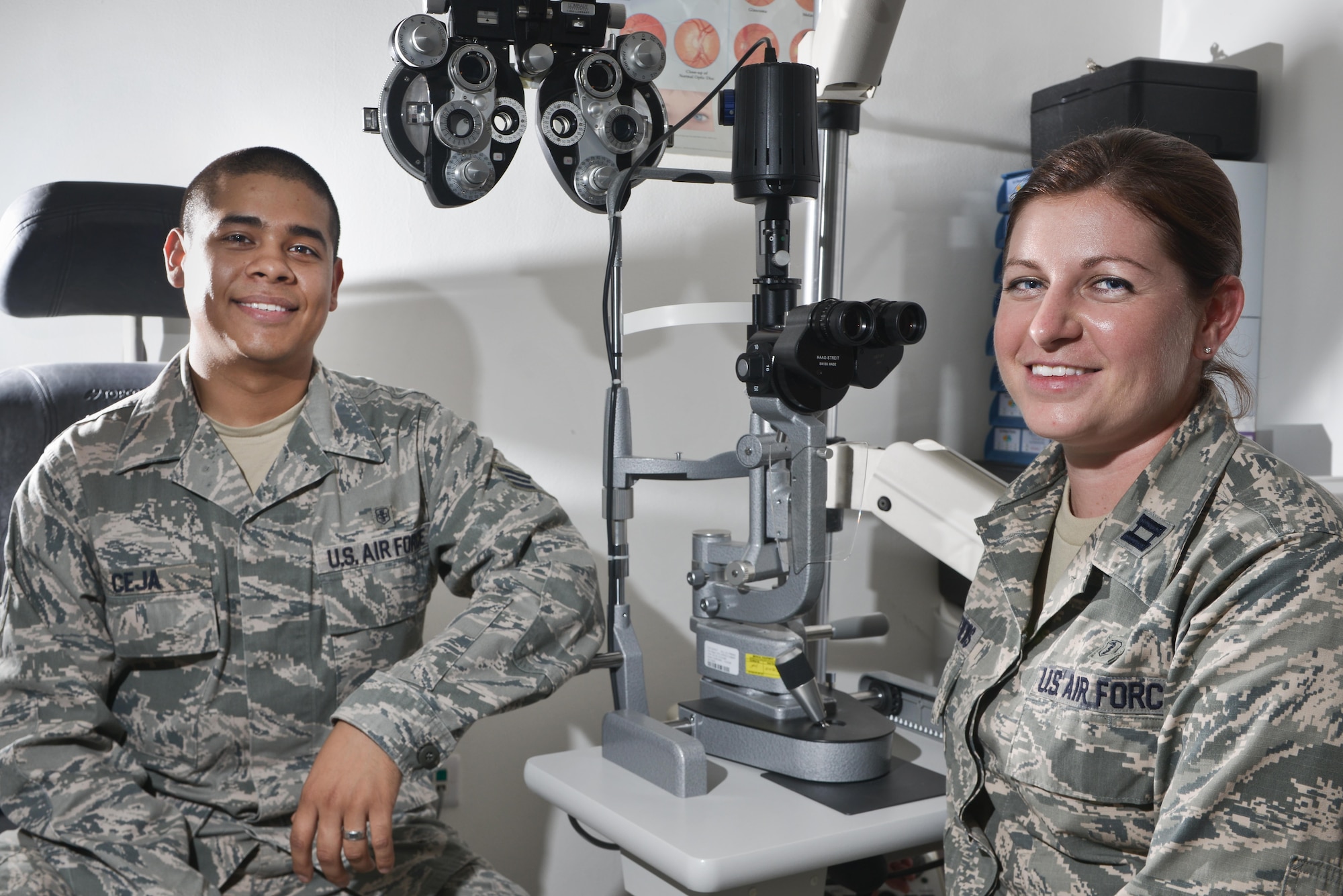Military Optometrist - The School of Optometry has many graduates each year who choose to serve as military optometrists. Lt. Matt Schaffner, OD, was kind enough to share his journey to becoming a military ophthalmologist and provide insight into a day in the life of an ophthalmologist. United States Navy. His wife and classmate, Ginny Carroll Schaffner, OD, is an ophthalmologist in San Diego, California.
My desire to serve my country in the military is what led me to pursue a career in the field of optics. I come from a long line of family members who have served our country in every conflict America has been involved in. I have a great great... (I don't know how many of my great-grandfathers, Major William Gill, who served as aide-de-camp to General George Washington in the American Revolution. Both of my great-grandfathers recently served, one of them he served in WWII in the Pacific theater, and my father and his brothers served in the Navy. as a health professional.
Military Optometrist
While researching health care fields in the Navy, I came across optometry as a Health Professional Profession (HPSP). HPSP is a qualified instructor provided by the Navy that provides full coverage for medical, dental or vision expenses and allows for direct entry into the Navy as an officer. When I read about the Navy's optical career, the opportunity to serve our nation's heroes in such an important role was too good to pass up.
Military Service Award Recipient Committed To 'paying It Forward'
Optometry School Experience Prepared Me for This Career The University of Alabama at Birmingham prepared me completely to take on the challenge of meeting the vision needs of our working men and women. The diversity of our patient population at SO has allowed me to conduct clinical research and care for patients from different cultures and medical backgrounds. The Marines and the entire US military are made up of a diverse group of people from different countries, cultures and traditions, as I found out in SO. My experience at SO as a student has given me the tools and confidence to provide effective eye health care to our diverse military population.
In my fourth year of school, I was also able to do two rounds of the TBEye clinic in my last year of optometry school. At TBEye Clinic, we provide comprehensive and specialized eye exams to athletes, students and community members who have suffered brain injuries. We examine every aspect of eye health and vision, including eye disease, vision loss, and post-concussion binocular vision loss. One of the biggest takeaways from mTBEye Clinic is that we can help facilitate healing for mTBEye patients by addressing uncorrected defects, anomalies, and misunderstandings. These skills have become especially useful in the care of servicemen and women who have suffered head injuries on the high-profile tasks associated with military service.
A typical day at the Miramar Airport Optometry Clinic consists of providing comprehensive eye exams and glasses mostly to pilots and airmen, ensuring vision is maintained and the eye needs for operations the plane is safe. We also conduct the Student Naval Aviator eye exam for aspiring pilots and marines.
We not only treat Air Force Ones and Air Force Ones, but we also see patients from all other branches of the military, including the Army, Navy, Air Force, and Coast Guard.
United States Africa Command
At Naval Medical Center San Diego and the surrounding branch hospitals, we have several positions on rotation at all times in the outpatient clinics. I have the opportunity to teach fourth year optometry students from various optical schools as adjunct instructors. Students often find Navy rotations very enjoyable as they practice their skills on active duty military patients from around the country and even around the world.
Being a naval officer often requires time away from the hospital to fulfill other leadership roles and training. Teaching can be as boring as PowerPoint lessons to as exciting as learning how to escape a helicopter crash in the dark using a pool simulation!
As a Navy ophthalmologist, providing vision and eye care is very important to many professions, such as pilots who operate aircraft, submarines, and even special staff and crew who run night operations. I am so grateful for the honor of being able to serve America's heroes every day.
Is an equal / affirmative action employer committed to promoting a diverse, equitable and family-friendly environment in which all faculty and staff can excel and achieve work-life balance regardless of race, national origin, age, genetic or family history, gender, beliefs, gender identity and language, and sexual orientation. it also encourages applications from people with disabilities and veterans. CAMP WALKER, South Korea -- Good visibility is extremely important when it comes to military training. The main priority is to ensure that each soldier's vision allows them to carry out each mission. Ophthalmology plays an important role in achieving this goal. Wood Medical Hospital is located at Camp Walker and has an ophthalmologist on board who sees first hand the importance of good eye care.
Maj. Bryan Kemper, 28th Medical Operations Squadron Optometrist, Performs A Slit Lamp Test On U.s. Staff Sgt. David Neugebauer, 235th Military Police Company Training Non Commissioned Officer, During A Routine Eye Exam In
Maj. Louie L. Le, ophthalmologist, 215th Med. Det. is the only region IV ophthalmologist. His patients also include personnel at Camp Carroll, Chinhae and K2 Air Force Base. Coping with military service and being the only ophthalmologist in the area is not easy. However, he is committed to providing the best service to all his clients - although managing his time can be a real challenge. When asked, he said: "I wouldn't say it was a difficult time. There were only difficult times."
These cases can come anywhere, but the obvious problem is the yellow dust, which seems to be abundant. Lee explained that yellow dust is bad for the respiratory system and can cause eye problems. In such cases, it is recommended to visit an ophthalmologist, and wear sunglasses with UV (ultraviolet) protection.
Optometry, located near the Wood Medical Center, provides customers with a wide range of quality services. Family members, dependents and pensioners are among those who can receive this care. Care includes the most basic to the most complex eye exam - which ultimately determines whether a patient may need glasses.
Although the optical clinic may be small in size, this does not reduce the quality of service that patients can expect. However, for the efficient operation of the clinic, it is important that the customer takes care to keep the scheduled appointments or cancel them in a timely manner. As a reminder, the Camp Walker Eye Care Officers said that cancellations should be made one day before the scheduled time.
Maj. Julie Pickett, An Optometrist With The 165th Medical Detachment Optometry Based Out Of Ft. Bragg, North Carolina, Examines The Eyes Of Allen Skaggs, A Harrisburg, Illinois Resident During Innovative Readiness Training (
Maj. Le said he really enjoys his job. He is motivated by the desire to help others. He said he was proud to contribute to the welfare and health of soldiers.
"I am grateful to work on the front lines of eye care. My first goal is always to ensure that soldiers and customers receive the best possible eye care and protection." 1 / 3 Show Caption + Hide Caption - Col. Adrienne Ari, ophthalmologist, Landstuhl Regional Medical Center, performs an eye exam as part of a routine surgery at the LRMC Ophthalmology Clinic, Sept. 19. Ari was recently selected as an ophthalmologist in the Army by The Optometric Society of t...
3 / 3 Show Summary + Hide Comment - Col. Adrienne Ari, ophthalmologist, Landstuhl Regional Medical Center, performs an eye exam as part of a routine surgery at LRMC's vision clinic, Sept. 19. Ari was recently selected as a Fellow of the Optometric Society Optometrist of t... (Photo Credit: U.S.
LANDSTUHL, Germany - In the early 1990s, ROTC cadet Adrienne Ari graduated from college with a degree in physics. Although she has long been interested in working in medicine, she found the course load in medical school to be very difficult at that time, so she insisted on studying traditional four-year high school and started engineering.
Thousands Receive 'no Cost' Healthcare At Operation Empower Health Greater Savannah
Ari, now a colonel, was recently named the Optometric Society's 2019 Armed Forces Optometrist of the Year.
"My first job (as an engineer) was in Karlsruhe, Germany," said Ari, now an ophthalmologist consultant for the European Regional Health Authority. "I can't see myself doing this for 20 years. Some of it was because of the Gulf War. It was a tough time for the top lieutenants."
After a mandatory tour of duty as an engineering student, Ari pursued her dream of working in the medical field and turned to optometry. However, Ari found a home and a desire to take care of America's children



Post A Comment:
0 comments so far,add yours